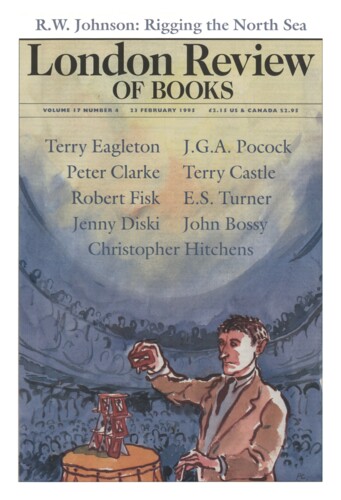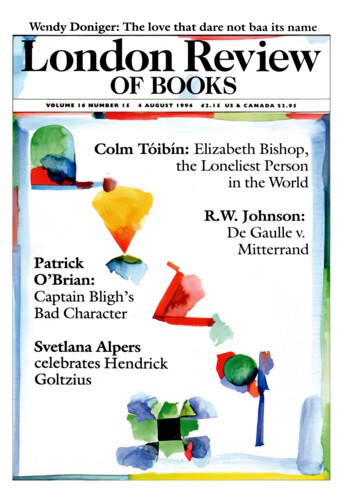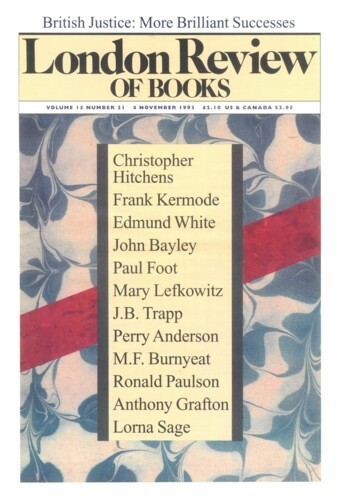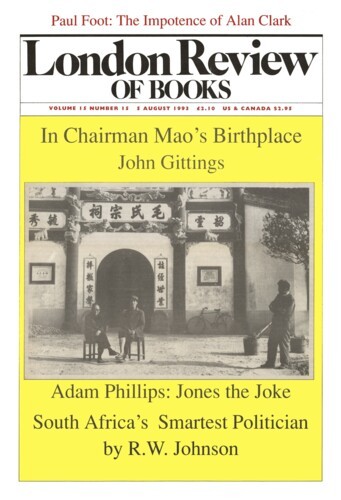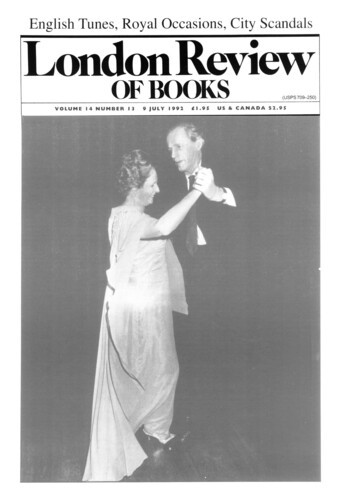Sperm’s-Eye View
Robert Crawford, 23 February 1995
The family, stuff of novelists as different as Rose Macaulay and James Joyce, Virginia Woolf and Lewis Grassic Gibbon, is absent from much great poetry of the early 20th century. T.S. Eliot’s parents, a religious poet and a businessman, produced between them a businessman-religious poet, and meant an enormous amount to him. Yet they scarcely figure in his poetry, while his criticism, obsessed with issues of inheritance, usually suggests that the kind of tradition that matters comes from books, not parents. Often Modernist poets seem embarrassed by Mum and Dad: Ezra Pound’s father, Homer, is displaced by his son’s epic poem. Pound is his own hero, lonely and supermannish. One has to turn to his biography to realise how much MacDiarmid’s family sustained him as he wrote such superb poems of isolation as ‘On a Raised Beach’. In Auden too, family can appear as weakness. Heredity, in various aspects of Modernist culture from Freud to eugenics, is a source of worry that becomes, eventually, a Nazi obsession.
